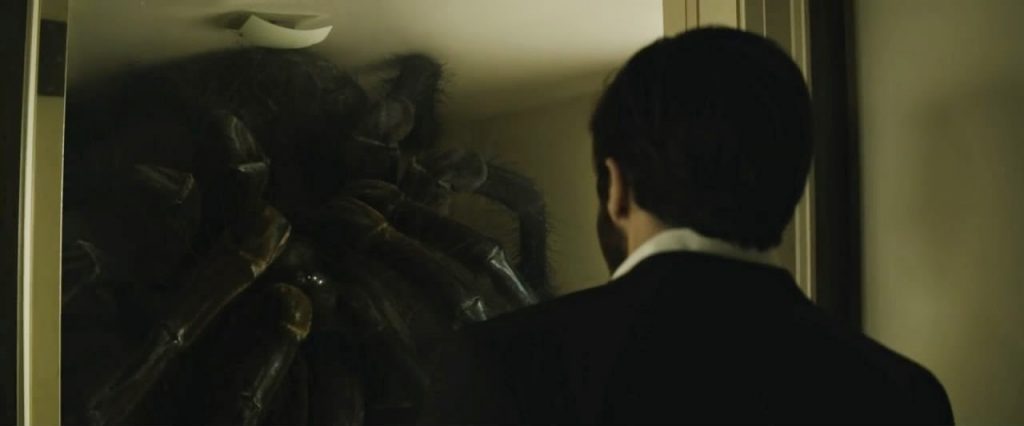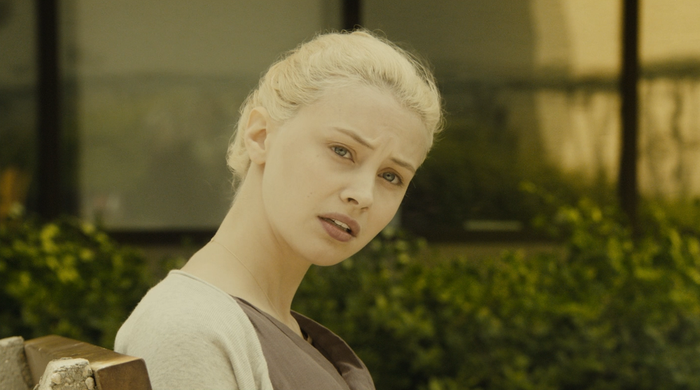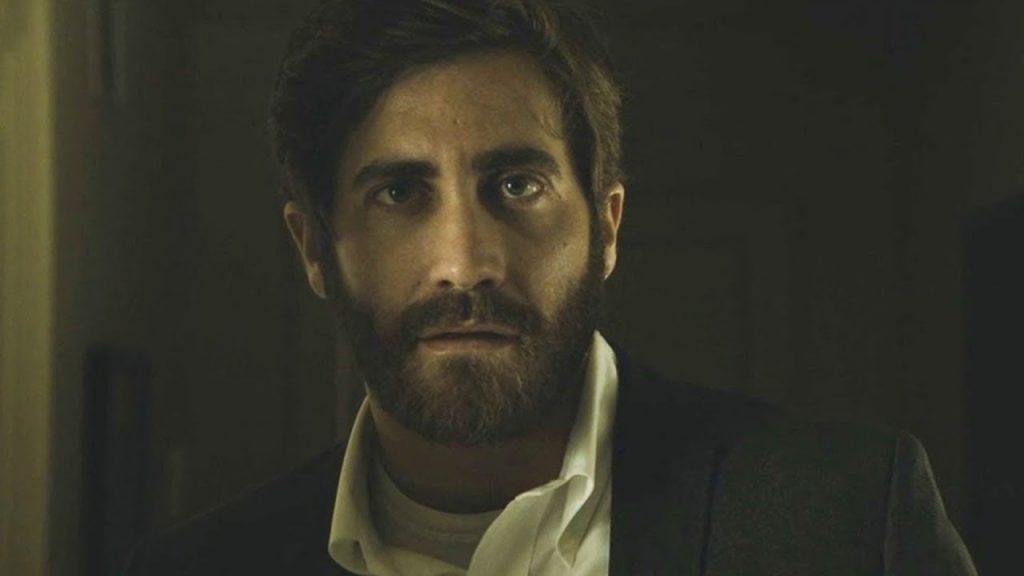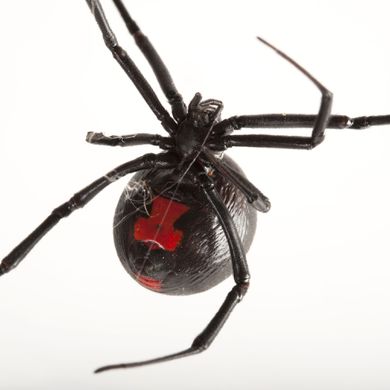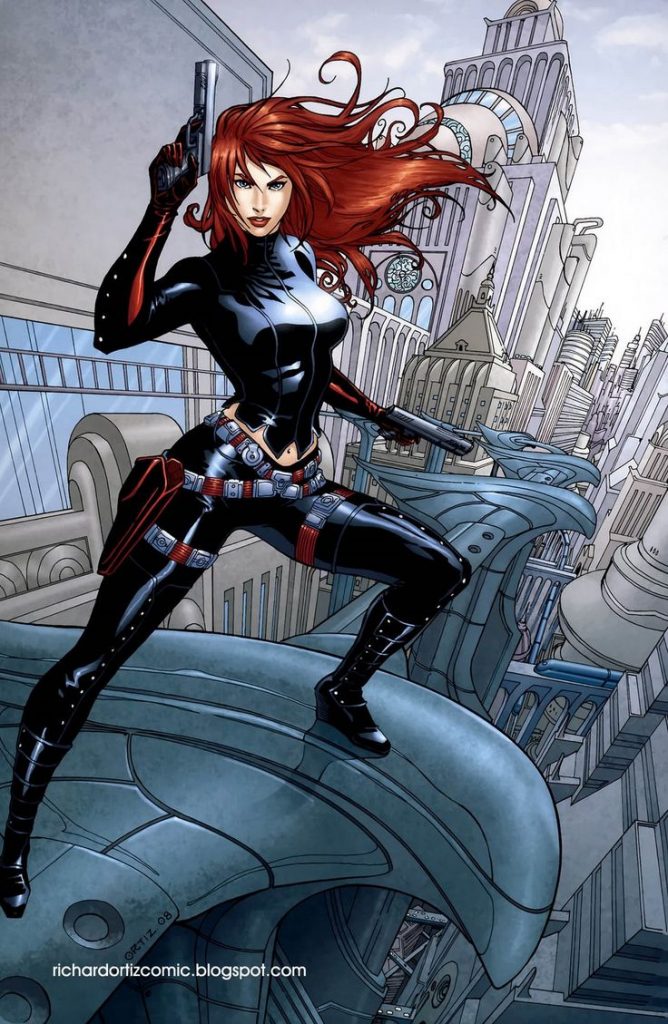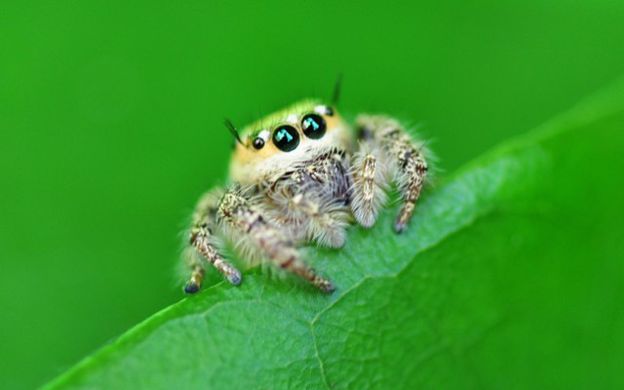Warning – Pictures of Spiders, if you hate spiders, stop reading now! Final Warning!
The final scene of Enemy is the culmination of the spider motif that runs throughout the movie. Adam/Anthony has spent the whole film trying to resolve the two sides of himself, the cheat who only cares about himself and the man who tries to provide for his wife and wants to make her happy, the one who loves acting but isn’t good enough to pursue it and the one who can make more money and be more stable as a history professor at a local university. But in this final scene he opens a letter to find a key for an underground erotic show he used to frequent a lot. He then lies to his wife about what he’ll be doing that night and walks into the bedroom, looking for his wife Helen, but sees a giant Tarantula, which scurries away and cowers in the corner of the room.
Throughout the film Denis Villeneuve uses the spider as a motif but at this moment it becomes clear that the spider represents the women in Adam/Anthony’s life. The other motif in the film is the idea of circles, and history being recursive, always coming back on itself and through this ending, Denis Villeneuve suggests that Adam/Anthony’s life is also recursive, he will never escape his debauchery but will constantly try to. This is indicated when he sees the monstrous spider in his bedroom instead of Helen and doesn’t run or panic but sighs dejectedly. Helen is being represented by the spider. Villeneuve has the spider replace Helen so that the audience can see how Adam/Anthony views women. As spiders, as something to be afraid of. By seeing this spider in the final scene, and considering the motif of circles, and of history repeating itself we can see that Adam/Anthony knows now that he can’t ever escape this side of himself.
The spider represents women because it’s a very common fear and Adam/Anthony is terrified of women and commitment, he thinks he has resolved these issues, but, like a fly caught in a web, he can’t escape who he is, and upon seeing the tarantula he realises that he’s still terrified of what’s in front of him, but he also knows he can’t escape it so just stands there. There is also a history of women being equated to women, for instance women are often compared to black widows, for instance an entry for black widows on urban dictionary says that a black widow is a woman who sucks the life out of her partners, which shows how pervasive this theme is in modern culture. There is also the popular marvel hero, black widow, who has no connections with spiders, but is a female who dresses in black, so is named black widow.
The spider is hugging the rear wall, clearly afraid of Adam/Anthony because Helen has seen him lie and cheat on her repeatedly. As the spider enters frame it changes position from the centre of the room and scurries to the corner, where is closes in on itself, recoiling from Adam/Anthony. She was comfortable with him and thought that he was over his demons but upon hearing him lie again she knows he isn’t. The spider is just as scared of Adam/Anthony as he is of it. They are on opposite ends of the room, kept apart by the shared knowledge about Adam/Anthony and the shared fear of each other, yet neither has the strength to leave the other as there is soon to be a child in their lives and he needs to provide for it and she needs him to provide for it.
Denis Villeneuve uses the spider as an allegory for women so that the audience can understand the fear that Adam/Anthony has for them, it becomes a common fear which helps us to understand the difficulty that Adam/Anthony is going through without making us sympathise with him.
Now here’s a cute spider, ‘cause they aren’t all big and scary.
